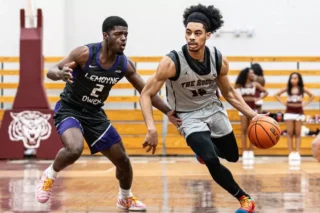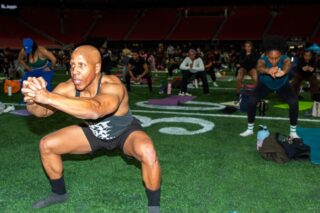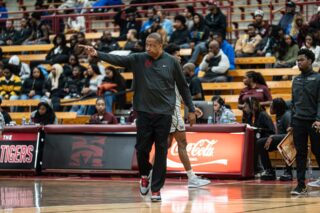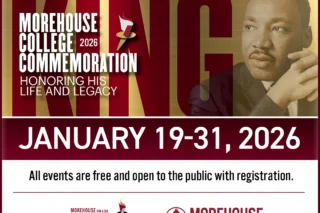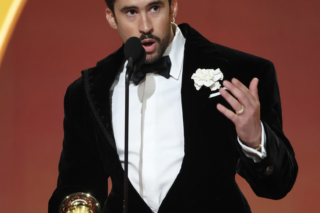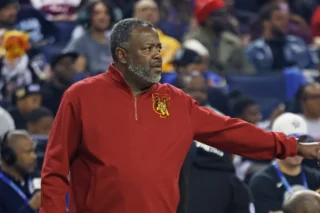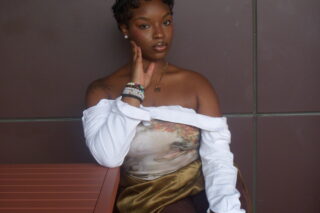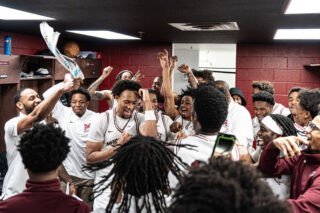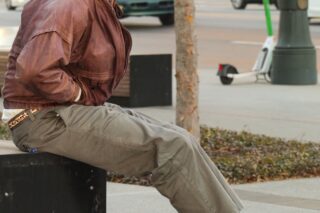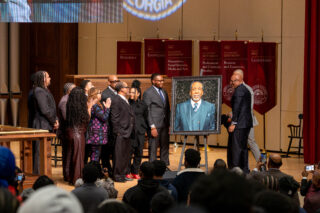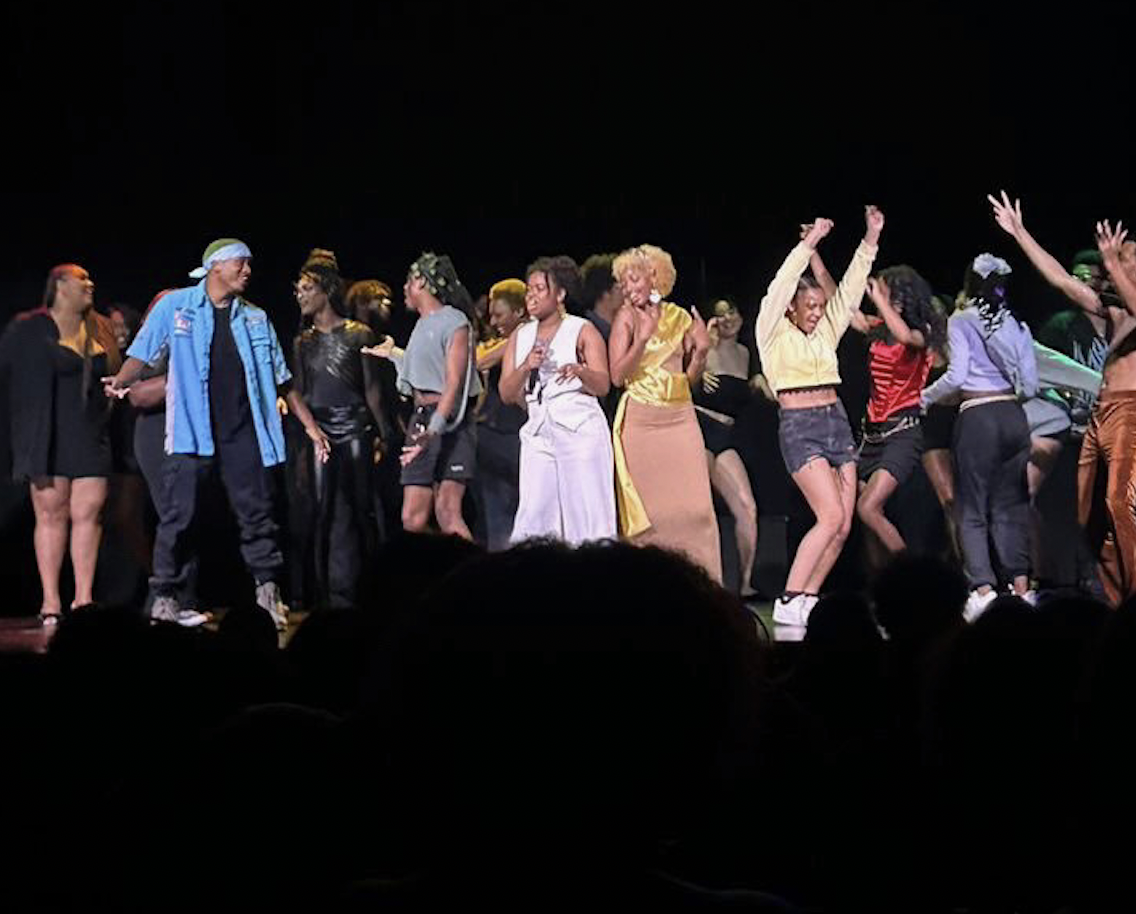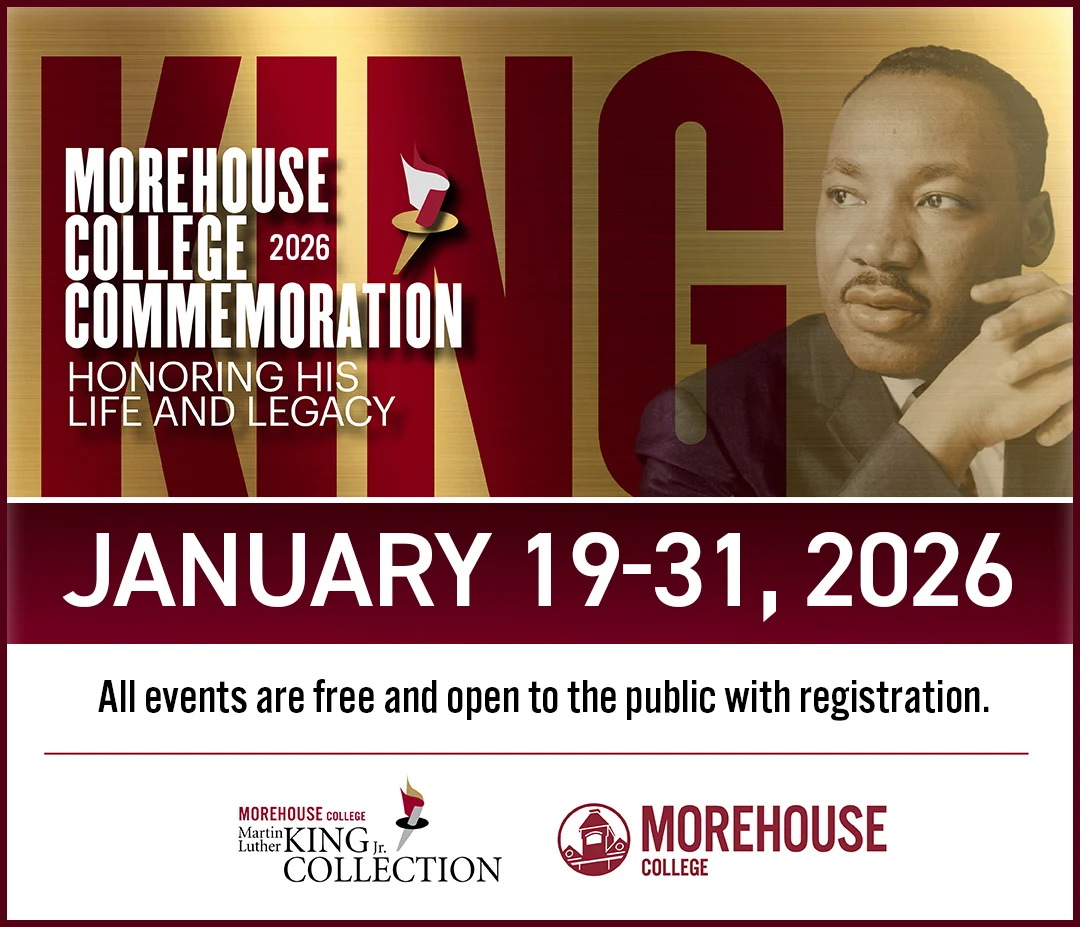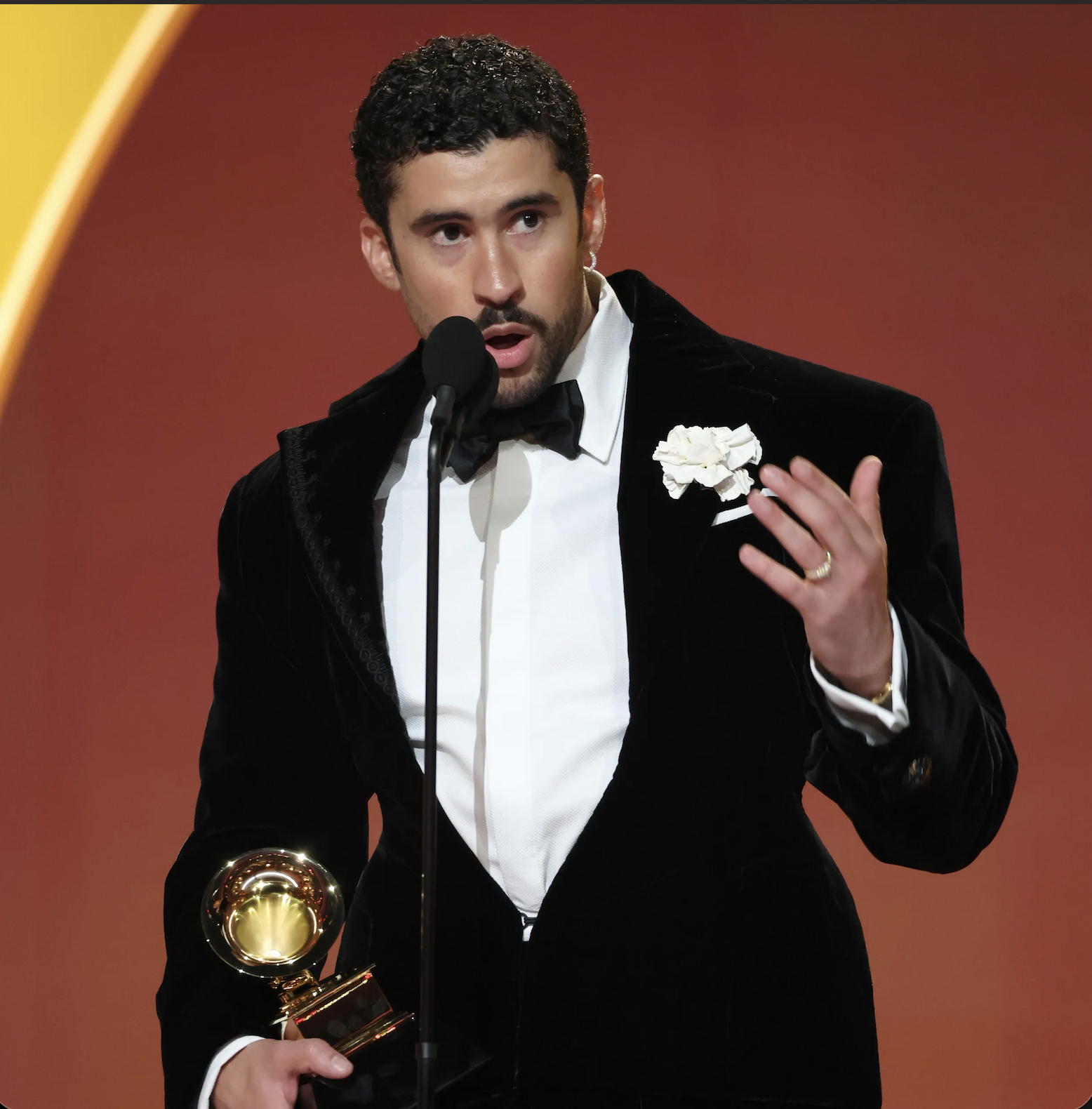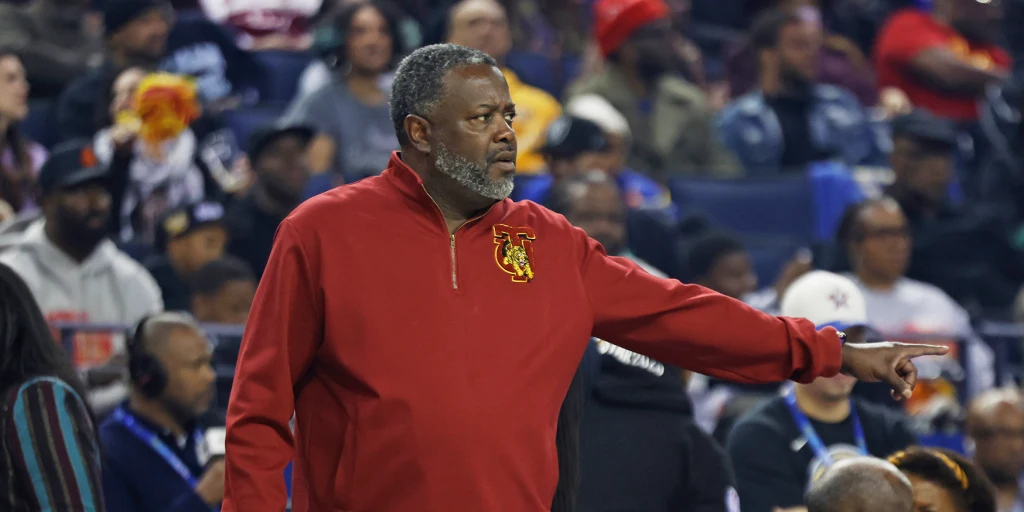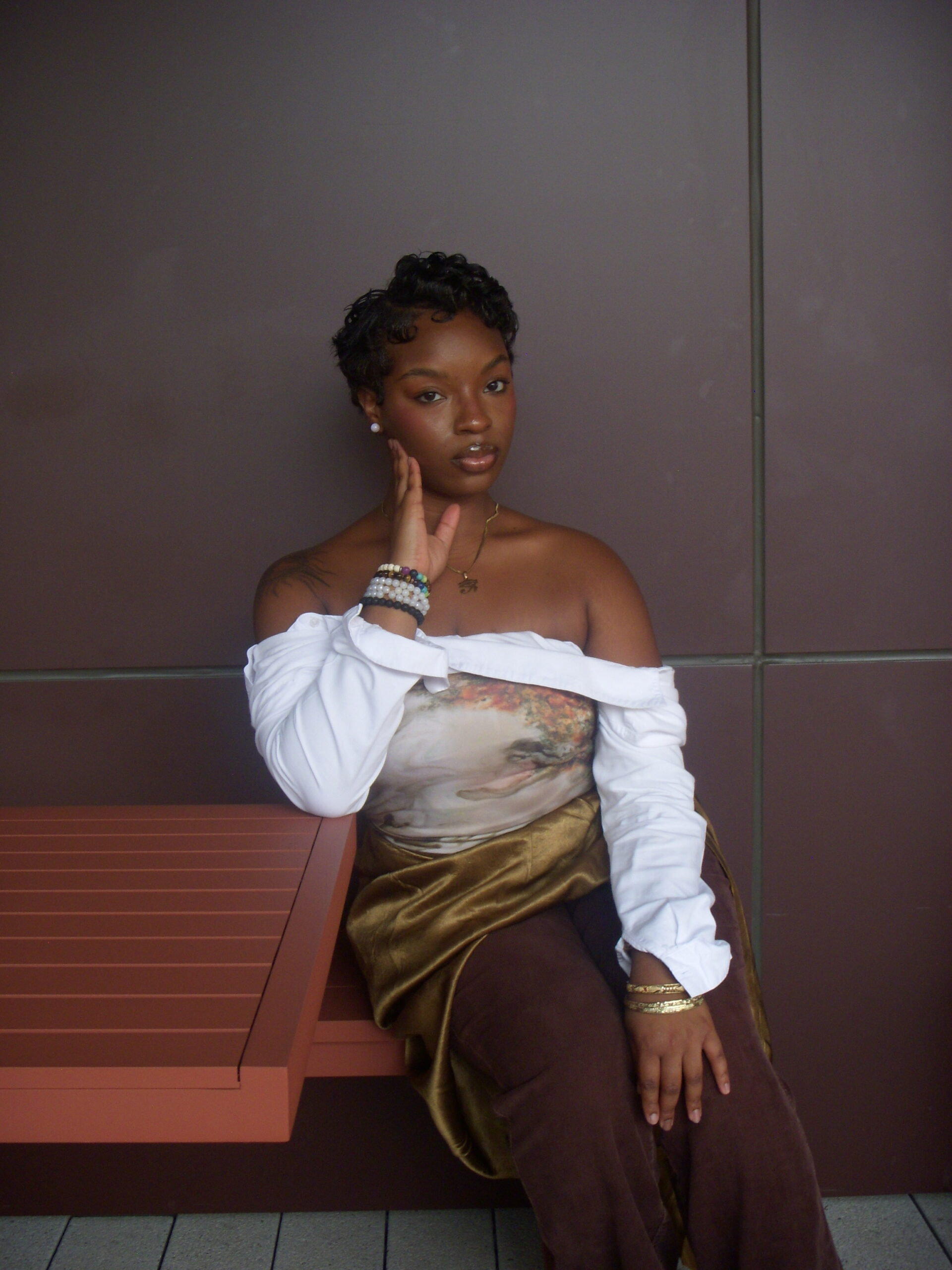Photo by: Spriggs Borroughs
By: Auzzy Byrdsell, MT Secretary
On April 29, students of the Atlanta University Center (AUC) celebrated the third and final showing of Art After Dark: Outta Time in the Alliance Theatre. In the production’s 10th year anniversary, Art After Dark is a sensual, emotional, passionate story of love and sexual liberation. The production features dancing, acting and creative writing.
Art After Dark is orchestrated through Spriggs Burroughs. Founded in 2014, Spriggs serves as the drama and dance ensemble at Spelman College. This organization is a sacred and empowering space for performing art featuring talent from Spelman, Morehouse College and Clark Atlanta University.
Spriggs Borroughs’ storytelling and content in their productions heavily exhibits erotic expression and LGBTQ+ identity and culture. These efforts bring visibility and understanding for the significantly growing queer community in the AUC.
Their two most notable productions in past years have been Art After Dark and Festival of Eccentrics (FOE), another collection of singing, dancing and creative writing influenced by ballroom culture. Nearly all of Spriggs Burroughs’ productions are completely student created, produced and performed.
In February, the Maroon Tiger investigated the lack of support and opportunities AUC artists have through SpelHouse. To read, click here. Spriggs Burroughs’ efforts have brought inclusion, relatability and attention to countless artists in the AUC.
Issaiha Cunningham serves as one the co-presidents of Spriggs Burroughs. The graduating senior majors in Cinema, Television and Emerging Media Studies and has been Spriggs since 2020. He agreed to sit down with the Maroon Tiger to share his perspective on Spriggs Burroughs’ significance in the AUC.
Byrdsell: How long have you been in this organization and what sparked your interest ?
Cunningham: So I’ve been in Springs since summer of 2020. My first position was Treasure. I honestly was pulled on by my friend Myles Chandler (vice president).
They were establishing a new e board, and he and my friend Jayla Dyas were running for presidents. They had filled up all of their other positions.
I was in a virtual production called The Highschool Hoodlum Heroes Present: The Purposeful Prison Pipeline Projectwith Myles directing. He told me, “You pulled through for me. I would love for you to be on the e-board.”
That ended up going really well. We ended up doing productions, and I got to see performances from behind the scenes and on stage from the AUC. I hadn’t got to be a part of any shows before COVID or anything.
From there, I assistant directed and helped produce certain things. I ran for a higher position on the e-board. Now, we’re here. That’s actually like, super, super dope.
Byrdsell: With the arts in such a rough place in the SpelHouse community, talk about how you or your peers have grown as an artist in Spriggs?
Cunningham: That was a really good question; I like how you set that up. There have been a lot of challenges that we have.
In terms of just difficulty with the department and difficulty getting support, there is just a lack of understanding of who these artists are. I feel like I’ve been misunderstood as an artist and as a human being. I feel like a lot of people in Springs have.
Fostering the community has been the biggest priority since I joined. Since I became co-president, that’s the only way we really get through this. That’s the only way we get opportunities. We have to make them together and make them for one another and by one another.
I’ve been learning that and the skill of peer management. Those two things taught me a lot as an artist. Perseverance is a thing that you don’t really realize you’ll have to do. Lots of artists didn’t realize we would have to deal with it so much before graduating.
Everybody always treats colleges like the step before the real world. But as artists, unfortunately, the real world started early.
In our fight to get our artistry believed in or taken seriously by the higher ups here, I learned a lot of perseverance. I learned a lot of picking and choosing my battles when it comes to fighting despite. I’ve never wanted to back down from it.
But in the presidential position, you have to play the game in a sense of doing things that the department requires you to do so that you stay charted as an RSO (registered student organization). There is also not letting them dismiss what the student body wants and not stopping.
Byrdsell: One of the biggest obstacles for Art After Dark this year was finding a venue. Is it true that you guys were denied for all of the campus venues?
Cunningham: Every single one besides Giles 106. We’ve been fortunate to have that and fortunate to make whatever space we wanted to make out of that space. But this year, for various reasons it was made difficult.
Spring is a very jam packed semester for a lot of different organizations and different events. Lots of different finals and recitals and things of that nature. Certain buildings just weren’t able to cooperate with us.
We needed a full week of tech and then a weekend on show with all of the equipment and the cast of that size. Early on, that was the struggle.
Then it came to spaces that we knew weren’t being used that we were getting denied access to. That’s when it became like, “Oh, this seems like it’s coming from a different angle.”
On their end, they sort of finger-pointed at our work for being last minute. But it’s like we’ve been getting told no for a month and a half.
We were just desperately asking anybody that we could come across. It was either professors at Clark Atlanta telling us they don’t have the bandwidth to advise our show, or it’s the heads of the department saying that it’s too short notice.
Spelman buildings were booked up all of a sudden. Morehouse had a lot of water damage to our performance buildings. So that was in the way.
Honestly, a big issue when it comes to reserving space is being ignored as well. There are lots of attempts that are made early on and lots of attempts that are pushed.
Because of the nature of Art After Dark, a lot of people also say no. It’s very sensual; it pushes that limit. Lots of people don’t really want to give access to the buildings for a show like that.
That goes back to me saying a lot of our artistry isn’t even taken seriously or believed enough for them to care to give us the space.
Byrdsell: Talk about Spriggs Borroughs’ focus on Black sexuality and the queer community. Is that intentional and why is it important?
Cunningham: They are very intentional. I feel like they’re important because it’s no secret in the AUC. Even outside of the AUC and in Black communities, there’s an unhealthy relationship and understanding of sex and consent and sexual abuse and sexual agency.
A lot of times, because we are so young, our struggles dealing with those types of situations are not looked at as crucial as they are. I feel like we, as young black artists and black people, face so much violence. It’s important to put on art and put on shows that showcase an agency over our bodies, over our sexuality, over our experiences.
It’s a way of claiming control artistically, claiming space no matter what people are going to be able to experience you in your story.
We do consent practices. We do exercises and things of that nature and conversations to make sure that everybody is comfortable every step of the way when we’re telling these stories.
Without that, a lot of these struggles get completely erased. Lots of these victims and students feel like they have no space to tell these stories.
We can give them a space to tell it artistically on their terms. Whether they have lived it, seen it or have friends who have lived it, giving them the platform to relay that message in a healthy way is important.
We must relay that message in a way that is freeing and that allows them to be artists. Many people who are in Spriggs are not even theater majors. They’re Sociology majors, Psychology majors, Chemistry majors and all types.
They don’t have to be this Morehouse man who is making their parents super proud in academia. They don’t have to be this Spelman doctor or anything.
They can just come and be a person and tell their stories. Oftentimes those stories just align with the clearness and freedom of the Black body and of the Black liberation. That’s what we need.
Byrdsell: How has the idea of AUC unity shown in the Spriggs community?
Cunningham: For me, it’s mostly shown through our casting process and our hiring process. With the revisions to our e-board, we introduced the Clark Atlanta University Liaison. They essentially keep that glue between SpelHouse and Clark together.
I know amongst the general student body, there’s always conversations of Clark against Morehouse and Spelman, or Spelman against Clark, or Morehouse against Clark. I just don’t really believe in that.
Everybody that I’ve met from all of the institutions have all showcased something that the other person may need or has. All have always showcased a sense of teamwork or potential for teamwork.
Because of bias and because of attitude, sometimes it gets kind of cloudy. In the artistic space, I just don’t really believe in that at all. We all come there to do the same thing for the same purpose
I love that people can be unified, and people get to meet across campuses. Different artists get to know their truth and their stories in these spaces. We never really shy away from all three campuses being seen and experiencing this together.
Byrdsell: What other events or productions should students be aware of?
Cunningham: This isn’t necessarily Spriggs, but I know the theater department does do a 10 minute play showcase. This is for playwrights and actors to be seen and get there.
Other than that, Springs is still in its blooming stage. We’re really thinking of new ideas, new shows to do and new perspectives to share. We’re actually open to hearing what the student body wants out of our work, what they wanna see or what they wanna do.
I personally would like just more open mic type of events out of the organization. I know at the beginning of the year, we do First Impressions. Everybody gets to come out.
It’s really low maintenance, which is really raw. It’s just a bunch of introductions, and you can show a talent or two. It’s whatever you would like to show, and just get to know your fellow classmates.
I just think that’s very vital in your experience with breaks. It’s vital in you knowing whether or not this could be your crowd and this could be for you.
We also just actually renewed our e-boards. Those announcements will be coming soon. They’ll get to talk about their new positions and things like that.
I know that this new import is gonna have a lot more ideas and a lot more group events and things for everybody to do. This way they’re not super reliant on just FOE and just Art After Dark. Stay tuned.

